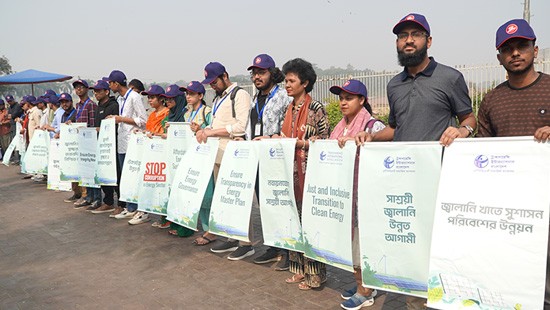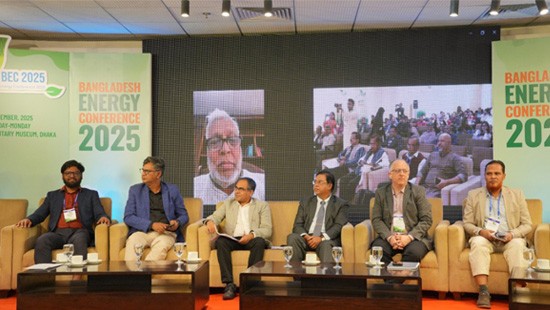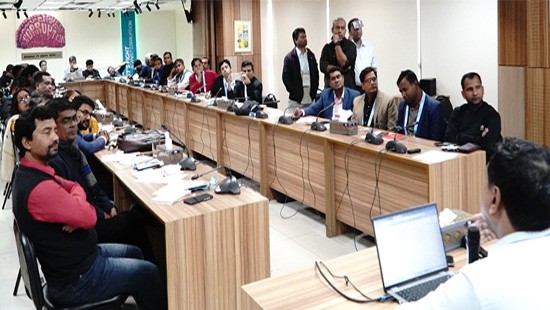Published: 03 October 2023
A staggering 25% of Bangladesh's parliamentary sessions, amounting to a remarkable 186 hours and 26 minutes, were absorbed by deliberations on the vote of thanks to the President's speech. The majority of this time was dominated by the ruling party's accolades for the Prime Minister and the government's accomplishments. However, this left an astonishingly meagre 16.7% of the session time for legislative matters.

These concerns were raised during a press conference, held on 1 October 2023, to present the findings of TIB's research study, titled ‘Parliament Watch 11th National Parliament: 1st to 22nd Sessions (January 2019 – April 2023)’, which comprehensively monitored and analysed the parliamentary sessions over the past five years.
Ineffective Opposition
TIB's Parliament Watch exposed a lacklustre Opposition - struggling to assert itself and hardly hold the government accountable.

Shockingly, data reveals that the Opposition spent more time applauding the Prime Minister and the government than criticising their actions.
Distracted Debates
Parliamentary debates consistently lacked fruitful substance, often verging on a platform of applause for the Government and criticism of the political opposition. A significant portion of the valuable time was diverted to discussing non-substantive matters, and even the question-answer (Q&A) sessions with the Prime Minister failed to focus on pressing issues.

Data shows that nearly 78% of the Prime Minister's Q&A session was dedicated to praising the ruling party and criticising the political opposition. The trend persisted in the Q&A sessions with ministers, where more than 64% of the time veered away from critical questions. This over-fixation on praise, rather than addressing pertinent issues, undermined the fundamental purpose of parliamentary proceedings.
Lackluster Legislative Efforts
The data reveals that a mere 16.7% of the parliamentary proceedings were dedicated to passing bills, raising serious concerns over the effectiveness of the legislative process. Notably, in 2019-20, the rate was nearly 49.3% in the United Kingdom, and in 2018-19, it was 45.0% in the 17th Indian Lok Sabha.
Budgetary Negligence

Shockingly, only a fraction of the parliamentary agenda was devoted to budget-related discussions, while the majority of time was spent on unrelated topics, applauding the Ruling Party, and denouncing the political opposition.
Inactive Standing Committees
The parliamentary standing committees showed a lack of seriousness and punctuality, often failing to meet the required frequency. According to the parliamentary rules, each of the 50 committees should have held at least one meeting per month, totalling 2,700 meetings in 48 months. However, only 1,187 meetings took place, with no committee adhering to the rule of holding at least one meeting a month.
Regarding the inactivity of the standing committees, TIB Executive Director Dr. Iftekharuzzaman commented, "There is much to be desired about the effectiveness of the standing committees, all of which failed to meet the mandatory requirement of holding at least one meeting a month."
Citizens’ Disillusionment
TIB expressed deep disappointment over the state of the parliament, pointing to an ineffective Opposition and unproductive discussions as primary factors leading to citizens’ disillusionment.
Following the study release, Dr. Iftekharuzzaman commented, "The deficiencies of the effectiveness of the parliament are attributed to the continued identity crisis of the main Opposition coupled with the absolute majority of the ruling party, which monopolised the space for debate and deliberations. As a result, the key mandate of the parliament to ensure accountability of the Government to the people remains far from delivered.”
Recommendations for Change
In light of these troubling revelations, TIB has put forward a comprehensive set of 13 recommendations to enhance the effectiveness of Parliament. These proposals encompass significant reforms, such as amending Section 70 of the Constitution to bolster the independence of parliamentarians. For a detailed breakdown of our findings and recommendations, please click here.






